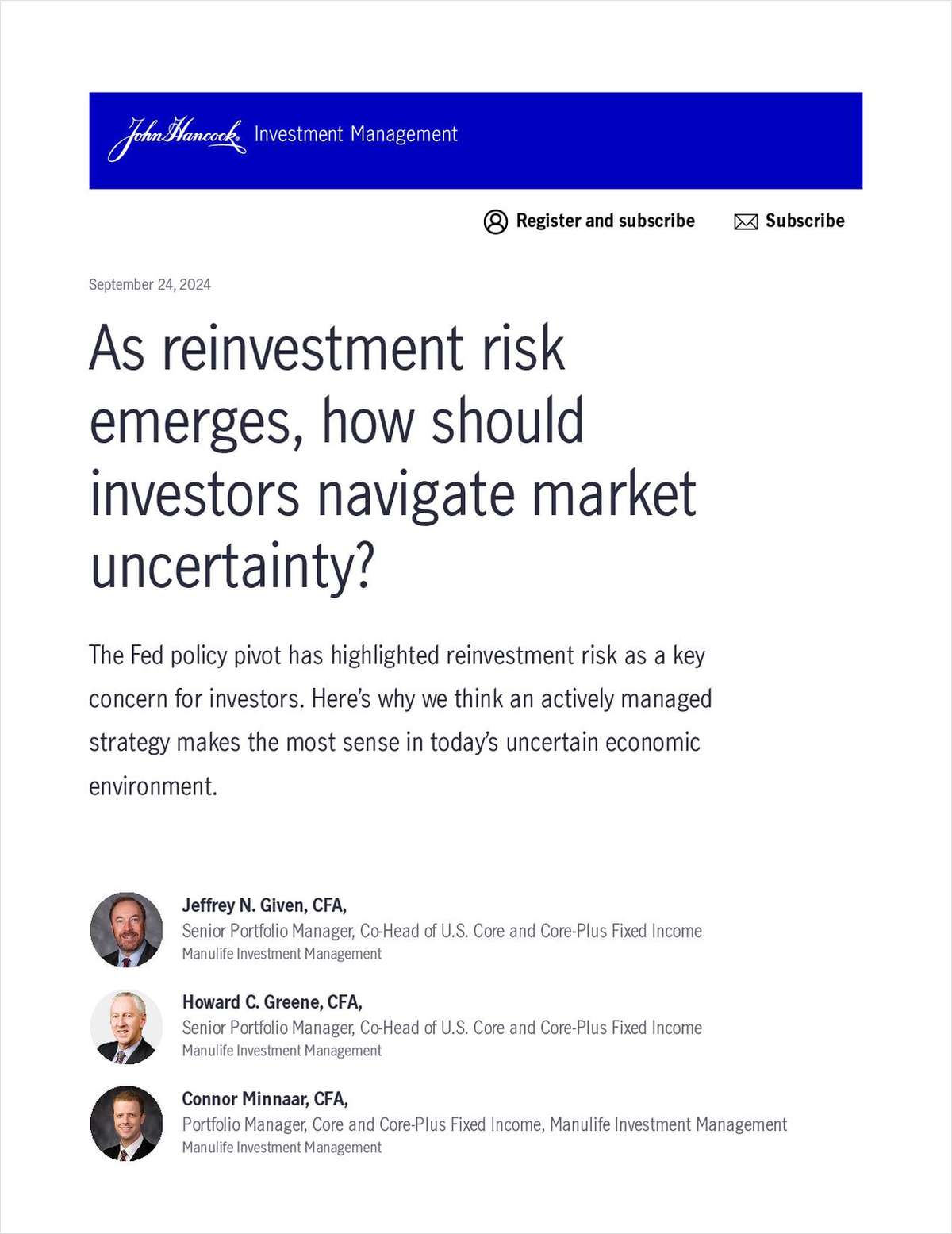As developed markets continue to use monetary and fiscal policies to re-flate stagnant economies, many economists currently believe that these economies are more likely to welcome higher prices—as long as those prices don't represent runaway inflation—as a potential signal of improving economic growth. This, in turn, generally can attract capital to the equity markets. Conversely, inflation could be perceived as a threat to emerging equities because central banks might have to strategically slow economic growth to prevent inflation from spiraling out of control.
Because equity markets are forward-looking, investors have tended to seek areas of accelerating growth and shun areas where growth is decelerating or stalled. While investors had bid up prices in emerging markets over the last three years as growth accelerated, they now seem to be forecasting slower growth rates in the coming quarters and thus have been reducing exposure in favor of the developed markets.
But it may not be just the threat of a central bank-induced economic slowdown that has caused investors to pull assets from emerging markets. Investors may also be concerned with the fact that emerging country central banks don't have a long track record of controlling inflation. This lack of experience increases the potential for disastrous consequences. While China, for example, has experienced inflation in the past, it has never had to combat it in such a public way. This could be a challenging task for a communist country that is beginning to adopt capitalist economic traits. The risks are significant, as many believe the Chinese government needs to slow the economy just enough to quell inflationary pressures without slowing the economy so much that the economic growth engine stalls. If the current regime is unable to strike the right balance, there is the very real potential for civil unrest.
What will the rest of the year hold?
While we believe emerging economies' success in containing inflation will be a key determinant in equity market performance, recent events have introduced new variables.
Specifically, the earthquake and tsunami in Japan in March are likely to carry significant implications for economic growth and inflation trends across the globe. Japan has had its share of economic struggles, yet it remains the world's third largest economy. In the days following the earthquake, the Japanese equity markets fell more than 20%, considerably closing the performance gap that had formed between emerging and developed equity markets so far in 2011. What might this mean going forward?



